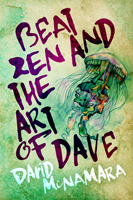W
Based on recent discussions in news and social media (both locally and abroad) the only thing invested parties might agree on is how different these issues are. So it’s not without irony that I’ve been struck by how similar the pattern of noise and nuance is that feeds these debates.
Let me start by saying, I’m not an avid sports fan and having only recently returned to Australia from the USA, I haven’t followed the AFL or any league for that matter. However, the debate regarding the persistent booing of Sydney Swans player Adam Goodes ignited by West Coast Eagles supporters following last weekend’s game reminds me of the recent debate in the USA over the Confederate Flag.
I left the USA a few short weeks before the Mother Emanual Church massacre. While I do not share a history or legacy with the South, I’ve lived in Charleston SC for a majority of the past three years. It’s a place I love and news of the terror attack in a city I call home (sort of) affected me deeply. Consequently, I was emotionally invested in the events that followed and helped heal the city.
This centred on removing the Confederate Battle Flag from the South Carolina State House. The issue polarised parts of the community as people defended their personal belief — honourable notions of identity and history versus a cultural legacy of racial oppression. I can’t say how divisive or helpful the media was in what was a culturally explosive topic. It was of course a discordant distraction to the main issue of removing the Confederate Flag as a symbol of racism.
But what fascinated me about this process was how little it contributed to a resolution because so much of Civil War and America’s history is still in dispute. Not just the significance of the flag, I’m talking about the literal history of the country — the old kind that’s in book which I naively thought at some point (in the past 150 years) had been sorted out as objectively as it could. Racism also embroils the debate over booing Adam Goodes — and just like with the Confederate Flag, arguments are quickly reduced to people defending an opinion they hold to be true.
Context is important, and in the case of Adam Goodes a lot of arguments have been based around context. But if you take away the football stadium, the consistent vilification of Goodes minus a football oval suddenly appears absurdly anachronistic and wrong. The same description could be used for the dispute in Australia over legalising same sex marriage.
People can squabble all they like, if that’s what that want to do — I don’t really give a shit. But the problem with people who want to prove themselves to be right is they get louder and louder and often miss the point of what’s important. And whatever the reason people feel justified in booing Goodes, it’s irrelevant because it’s hurting him, and those around him.
People who have to be right also don’t give up easily. They epitomise the infuriating feeling of stretching for something that’s just out of reach — believing if they keep at it, they can nudge someone else close enough to sympathise with their point of view. Yet, the danger of holding on to an opinion is you may unwittingly end up like the belligerent kid in a backyard cricket game — who’s batted all afternoon then refuses to leave the crease when he’s finally given out.
In recent news coverage football, flags, racism and same sex marriage have shared this frequency of opinions in arguments — where people hold on tighter, not realising the point of it is to let go. To let go of traditions and preset ways of thinking so we can better recognise, question and correct grievances in the community to move forward together. That’s the whole point of a civilised society right?
Extending the comparison with America, Australians like to think of themselves as intelligent, culturally aware and progressive thinkers. We are a bright example in the USA when discussing the highlighted issue of gun control and mass shootings. But then we seem to struggle to get a conscious vote through parliament on the subject of same sex marriage. This isn’t helped when our prime minister appears to confuse what he believes in with what is right for our country – because we don’t live in a theocracy and who people chose to marry is no business of his.
I have heard the term “casual racism” being used in relation to Adam Goodes. It’s a funny term — because it makes a malignancy in our society sound kind of okay, as if it’s no big thing. It’s a bit like Subway — deep down we know it’s probably bad, but it doesn’t seem too bad in the whole scheme of things since it’s sandwiched in a sandwich. However, casual racism is probably the most appropriate term to encapsulate the Goode’s affair.
Admittedly, it can all get a bit confusing — like with charity which is not supposed to be about doing something because it feels good, it’s about doing something because it’s the right thing to do. It’s okay to fake it ‘till you make it. But there are some things (like the Confederate Flag) where collectively doing what’s right (regardless of personal opinion) should be easy, right?
South Carolina proved this.
For a flag that could not physically or legally be lowered it took three weeks to pass a bill and remove a symbol that had been there for half a century. Like a flag your beliefs are your own and you can wave them about all you like — as long as they don’t oppress or cause harm. This means acknowledging shit that is just plain wrong like racism, armies in dark uniforms with skull-and-cross-bones insignias and Jar Jar Binks; and shit that is just plain right, like the freedom to let people be whoever the fuck they want to be and marry whoever the fuck they want to, wherever they want to — so we can all move on.








